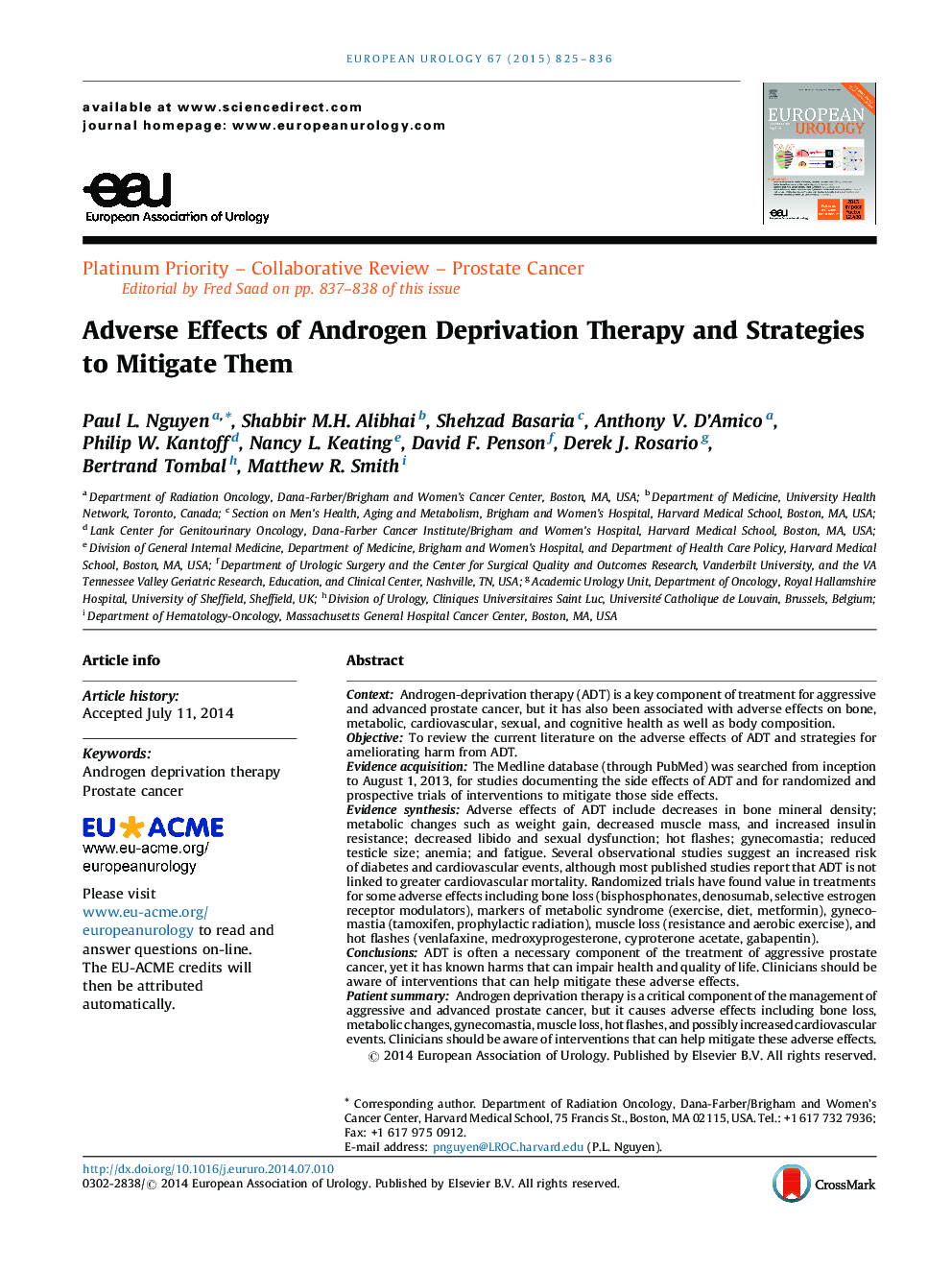| Article ID | Journal | Published Year | Pages | File Type |
|---|---|---|---|---|
| 3923599 | European Urology | 2015 | 12 Pages |
ContextAndrogen-deprivation therapy (ADT) is a key component of treatment for aggressive and advanced prostate cancer, but it has also been associated with adverse effects on bone, metabolic, cardiovascular, sexual, and cognitive health as well as body composition.ObjectiveTo review the current literature on the adverse effects of ADT and strategies for ameliorating harm from ADT.Evidence acquisitionThe Medline database (through PubMed) was searched from inception to August 1, 2013, for studies documenting the side effects of ADT and for randomized and prospective trials of interventions to mitigate those side effects.Evidence synthesisAdverse effects of ADT include decreases in bone mineral density; metabolic changes such as weight gain, decreased muscle mass, and increased insulin resistance; decreased libido and sexual dysfunction; hot flashes; gynecomastia; reduced testicle size; anemia; and fatigue. Several observational studies suggest an increased risk of diabetes and cardiovascular events, although most published studies report that ADT is not linked to greater cardiovascular mortality. Randomized trials have found value in treatments for some adverse effects including bone loss (bisphosphonates, denosumab, selective estrogen receptor modulators), markers of metabolic syndrome (exercise, diet, metformin), gynecomastia (tamoxifen, prophylactic radiation), muscle loss (resistance and aerobic exercise), and hot flashes (venlafaxine, medroxyprogesterone, cyproterone acetate, gabapentin).ConclusionsADT is often a necessary component of the treatment of aggressive prostate cancer, yet it has known harms that can impair health and quality of life. Clinicians should be aware of interventions that can help mitigate these adverse effects.Patient summaryAndrogen deprivation therapy is a critical component of the management of aggressive and advanced prostate cancer, but it causes adverse effects including bone loss, metabolic changes, gynecomastia, muscle loss, hot flashes, and possibly increased cardiovascular events. Clinicians should be aware of interventions that can help mitigate these adverse effects.
